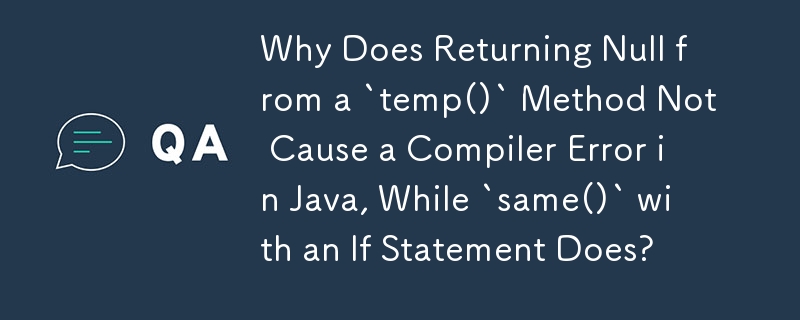

Returning null as int
In Java, the temp() method does not raise a compiler error despite returning null for an int, while same() does when represented as an if statement. This discrepancy arises due to the compiler's interpretation of null return values.
Ternary Operator
For the ternary operator, the compiler treats null as a null reference to an Integer, following autoboxing/unboxing rules (Java Language Specification 15.25). This results in an int boxed into an Integer and converted back, allowing a null return value. However, this will generate a NullPointerException at runtime.
if Statement
When using an if statement, the compiler enforces incompatible types between null and int. It expects an int return value and will not allow a null assignment, unlike the ternary operator, which allows autoboxing/unboxing conversions.
The above is the detailed content of Why Does Returning Null from a `temp()` Method Not Cause a Compiler Error in Java, While `same()` with an If Statement Does?. For more information, please follow other related articles on the PHP Chinese website!




